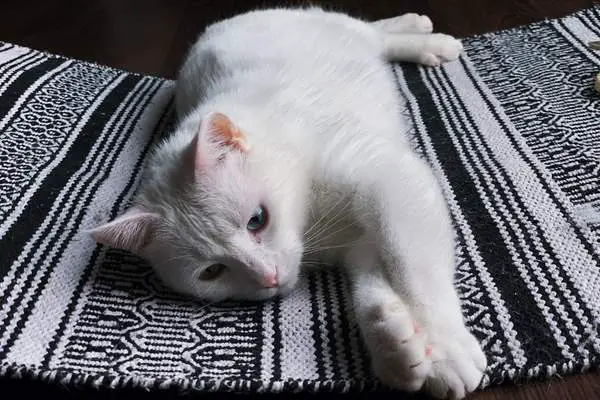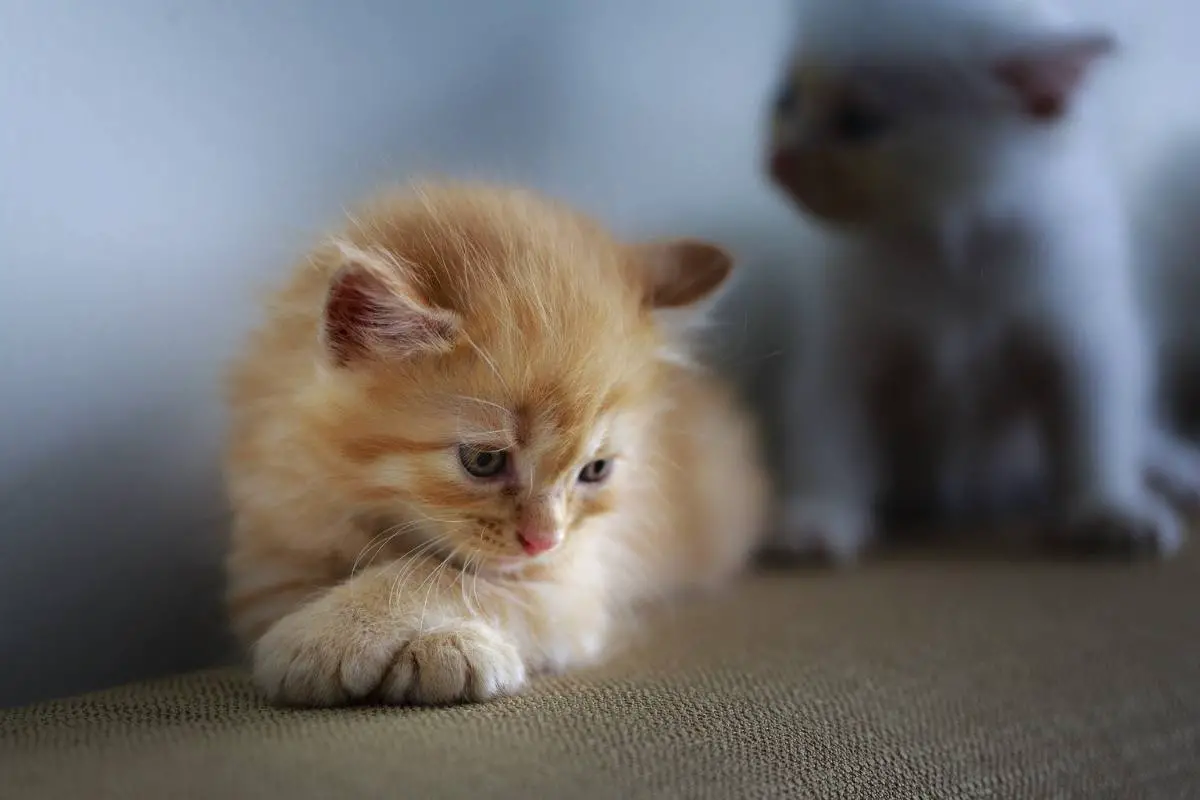Whether it’s going away to college for the first time or signing a lease on your first apartment, moving out is both an exciting and stressful experience. You yourself may be worried about your new place and leaving your old home behind, but what about your pets? Your family’s cat or cats might sometimes seem indifferent to your comings and goings, but you may be concerned about them anyway.
So, will my cat miss me when I move out? Because cats can experience sadness and feelings of loss and grief, especially for a close companion, it’s very likely that they will miss you while you’re away.
Learning this can be discouraging to hear, especially on top of the rest of the stress involved with moving out. However, learning more about how your cat feels emotions and processes them can help both you and your cat. In this article, you will learn about how your cat expresses feelings of sadness, and how you and the others in your household can help your pet feel better faster.
Cats and Sadness

Cats may seem to be somewhat distant animals at times, especially to people who don’t have a lot of experience with cats. People who are familiar with cats, however, often see more to their pet than other people might.
Over time you’ve become familiar with cat behavior, and likely your cat’s specific personality. Hopefully, you’ve never had to see your cat sad or depressed, but it does happen despite our best efforts as pet owners. Signs that your cat may be depressed include:
- Lethargy or listlessness
- Increased sleep
- Decreased appetite
- Changes in vocalization—meowing more or less
- Changes in grooming behavior
- Dull fur
- Increased scratching and territorial marking
- Aggression or fear
- Clinginess
- Hiding or running from you
- Tucked tail and pinned or low ears
All of these are obvious signs that your cat is not feeling well, both physically and emotionally. Many things can cause depression in cats, but the loss of a friend or a partner is a key source of distress.
If you have recently lost a family pet to old age or illness, or a beloved family member or friend has gone on a trip or has moved out, you may notice that it isn’t just you who is feeling the pain of loss, it’s your cat as well.
Sadness Versus Separation Anxiety

It may be that your cat isn’t depressed but is instead anxious. Some cats react very strongly when you leave, even if it’s just stepping out to get the mail. Screaming or crying, pacing or clawing—all of these are signs of separation anxiety, which is something that happens to cats who spend a great deal of time with their owner, and are very attached to them.
If your cat’s anxiety is mild and not destructive, it’s best to just go about your life as usual and establish a routine and boundaries: not all of your time belongs to your cat, and that’s ok.
Eventually, your cat will settle into their new routine, and things will be calm again. However, if your cat’s anxiety is explosive and disruptive, it’s best to consult a veterinarian or a behaviorist to learn more ways to help your cat cope with you leaving, so that neither you nor your cat gets hurt from their out-of-control anxiety.
Steps to Take
If you currently own a cat who is showing signs of depression, not anxiety, you’ll be relieved to know that you can help them feel better. Cats, just like people, often need comfort and distraction from their emotions in order to regain control of overwhelming feelings.
– First, if your cat seems to be just lying around, disinterested in everything, try just going and sitting with them. Scratch their favorite spot, try giving them a treat or offering to play with them with their favorite toy.
It may not seem like your cat is interested in any activity, but just like in people, it’s often the thought that counts. By showing your cat that you care for them, they may begin to feel better.
– Second, if your cat is becoming clingy to the point that you can hardly get anything done, make sure that your pet understands your personal boundaries. Providing attention for a time, then putting your cat of the room demonstrates that you are there for them but also need your own space.
This may seem harsh, but if you also provide them with a place to feel safe and secure without you, such as a nice quiet bed in a room where they can rest, will help them remember that they can care for themselves.
Conversely, if your cat is hiding and running constantly, do not attempt to drag them back out and keep them near you. Instead, do the same thing you would if your cat was clingy: make sure they have a safe place to hide, and go about your life in a regular fashion, providing care and comfort for your pet as needed. Once your cat feels safer, it may come out and find you again.
– Third, if your cat’s new anxious behaviors such as scratching or marking more often is beginning to wear on your nerves and your furniture, it may be time to invest in a new scratching post. It’s also important to reinforce the fact that this behavior is unacceptable.
You may have to scold your cat and physically remove them from the place they were scratching and retrain them to vent their stress in healthy ways and on appropriate items. Contacting your vet or another specialist in cat behavior may be of help if your cat is too stressed to listen to you
– Finally, and perhaps most importantly: keep your routine, or, if you tend to be someone who doesn’t have much pattern to what you do and when, establish a routine. It may be hard to change your own habits, but it is important to your cat’s sense of safety and security to have a daily list of things that it does and that you do.
This will help them regain a sense of stability and safety, even if things are different now than they were before.
When You Leave

It’s good that you are planning for your cat in advance, because what you do before you go is key to making sure your cat is not overwhelmed by the change. If you are your cat’s primary caretaker, be sure to leave precise instructions to their new carer so that they can keep your cat’s schedule.
This stability will help your cat bounce back, even while missing you. Make sure that the people around your cat, whether your family, a friend, or a petsitter, is aware of what the signs of a depressed cat are from the list above, and let them know what they can do to help.
Information is valuable, and making sure that your cat has people near them who know what is normal and what isn’t for them is an important part of their health. Lastly, and this is perhaps the hardest part, do not draw out the goodbyes.
It can be so hard to leave your pet behind, and you may want to linger and give them all the hugs and kisses you can. However, this often increases your pet’s anxiety about the situation. It’s better for both of you if you give them a hug, a kiss, and be on your way.
Coming Home
Eventually, you will come back to visit, or come home from your trip. You may be happy to find that your cat is happy to see you, and is more than content to pick up where you left off. Conversely, you may be alarmed to find out that your cat is not nearly as happy to see you as your family and friends are.
Even with all the care and attention in the world, your cat may still be upset that you left. It’s not recommended that you try to force your affection onto your cat, as you might get scratched or bitten.
Instead, do your best to just go about your life as you would anyway: feed your cat, offer to play if they’re playful, and give them space if they want it. Eventually, your cat will forgive you for leaving, and all will be well again. It just takes time and patience.
Will My Cat Miss Me When I Give Him Away?
Yes, your cat is likely to experience a sense of loss and miss you when you give them away. Cats form strong bonds with their owners, and the separation can lead to feelings of confusion and anxiety for the cat. While individual reactions may vary, it’s common for cats to exhibit signs of distress, such as changes in behavior, increased vocalization, or withdrawal.
It’s important to approach rehoming with sensitivity, ensuring that the new caregiver is prepared to provide the necessary care, attention, and a familiar environment to help ease the transition for your cat.
Conclusion
Leaving home on a trip, particularly a long trip, can be stressful for both you and your pet. Whether you’re just going out to the grocery store, or leaving for a new apartment in a new city, you may be concerned for the wellbeing of your cat at home.
Fortunately, making sure that you leave good instructions for your cat’s new carer and keeping most aspects of your cat’s life stable will help ease your cat getting used to your absence. Sadness is somewhat unavoidable, but it’s definitely possible to keep it from taking over your cat’s life.
By understanding what to do for a depressed or grieving cat and taking the proper steps before you leave will make both your life and your cat’s life much easier, and make sure that there’s no need to worry while you’re gone!
Sources:
- https://vcahospitals.com/know-your-pet/do-cats-mourn

